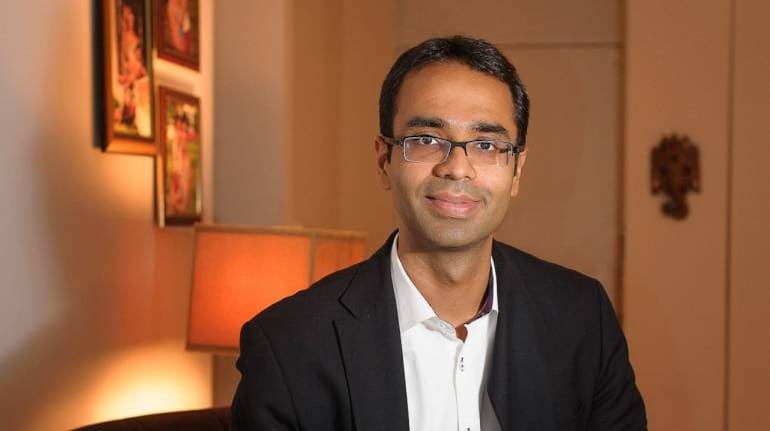



Note to readers: Hello world is a program developers run to check if a newly installed programming language is working alright. Startups and tech companies are continuously launching new software to run the real world. This column will attempt to be the "Hello World" for the real world, celebrating success when it's due and highlighting errors when needed.
Until two years ago, Karan Bajaj was not a well-known name in India’s startup ecosystem echo chamber. The bespectacled man in his early 40s, living in New York was better known as an author and the chief executive of Discovery Networks India. Bajaj, the son of an army man was raised in India, he studied engineering in BITS Mesra and then management at IIM Bangalore and has spent his working life in the United States.
Last week, news broke that his startup Whitehat Jr was sold to Byju’s in a $300 million all-cash deal. Let’s take a couple of minutes to marvel at this feat before we move on to the point I want to make in this column.
First, the company — barely 20 months old — was valued at over Rs 2,250 crore if you go by prevailing exchange rates. That’s about Rs 400 crore more than the combined market capitalization of NIIT Ltd and Aptech Ltd, two of India’s oldest and largest companies that taught kids of our generation coding.
Second, the company has raised only $11 million from venture capitalists. If you look at all the new-fangled online learning companies — the “edtech” category — this is an incredibly little amount of money raised. For instance, Unacademy has raised close to $200 million. Byju’s has raised $1.5 billion. Toppr has raised some $112 million. That is, Whitehat Jr seems like a capital-efficient company on steroids.
Also Read: WhiteHat Jr founder Karan Bajaj opens up about $300 million Byju’s deal, coding, edtech startup boom and moreThird, going by reports, the company has been cashflow positive for the last five months and has an impressive $150 million in annual revenue run rate. Now, this is the most magnificent feat of all. A cash flow positive startup with actual revenues of $150 million in India is what I’d call a real unicorn. The rarest of rare to find. Totally zigging, when others zag.
The ‘why now’ of the deal is easy to speculate. The pandemic has forced millions of children to go online to learn and the new national education policy places significant emphasis on digital learning. Education is a big business in India and parents are happy to spend money on getting their children a ‘decent’ education. Here’s a fast-growing company with a savvy marketing engine and great unit economics in a hot sector where larger competitors are steeped in an intense land grab. If one doesn’t acquire the company, another might.
Also Read: Remember GMVs? Startups now flaunt ARR—an equally fuzzy, misleading metricThe point, however, of this column, is none of that. Unlike this columnist who’s up late-night stringing words, you, dear reader, must not lose sleep over this or anything else for that matter. As a friend points out, the superpower that Karan Bajaj the yogi, who has written four books before Whitehat Jr, has is his ability to sleep it off.
 Bajaj recalls in a blog post in 2017, “...My start-up crashed. I lost a bunch of money all over again. My magnum-opus novel failed. This time, I had two kids so it should’ve felt more stressful. Except this time I didn’t lose a single night of sleep. This is life. Some ups, more downs. Success is ephemeral, failure is never far. If you try new things, you’ll likely crumble. You’ll pick up the pieces, then you’ll crumble again. It’s messy, glorious, always work-in-progress. Just don’t lose sleep. Sleep is wonderful. It relaxes, rejuvenates, wipes off the failures of the day before, and helps start the new day on a blank slate.”
Bajaj recalls in a blog post in 2017, “...My start-up crashed. I lost a bunch of money all over again. My magnum-opus novel failed. This time, I had two kids so it should’ve felt more stressful. Except this time I didn’t lose a single night of sleep. This is life. Some ups, more downs. Success is ephemeral, failure is never far. If you try new things, you’ll likely crumble. You’ll pick up the pieces, then you’ll crumble again. It’s messy, glorious, always work-in-progress. Just don’t lose sleep. Sleep is wonderful. It relaxes, rejuvenates, wipes off the failures of the day before, and helps start the new day on a blank slate.”
If you are reading this in the morning, don’t forget to take that afternoon nap. I mean it.
Jayadevan PK is a former technology journalist and recovering startup founder. He now works with Freshworks Inc as an evangelist, focusing on efforts around brand building. He’s also a commissioned author at HarperCollins.
Discover the latest Business News, Sensex, and Nifty updates. Obtain Personal Finance insights, tax queries, and expert opinions on Moneycontrol or download the Moneycontrol App to stay updated!
Find the best of Al News in one place, specially curated for you every weekend.
Stay on top of the latest tech trends and biggest startup news.